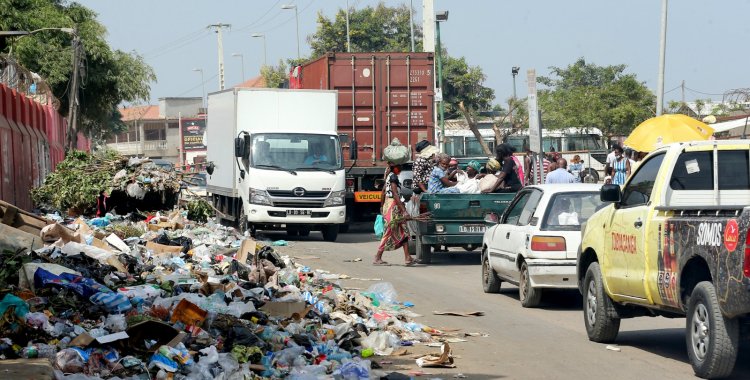The information was given by the executive director of Asan, José Araújo, when he presented the topic "Compulsory Insurance in Angola," at the forum promoted by the Association of Economic Journalists (Ajeco) on banking and insurance.
According to José Araújo, there will be no more than 15 percent of potential vehicles circulating in Angola with valid insurance.
"With valid car insurance in Angola there will certainly not be more than 350,000 vehicles," according to Asan estimates, with data for 2020, presented by José Araújo.
The responsible stressed the importance of the intervention of the police authorities, as well as the strengthening of the development of agent networks and direct sales channels or 'online'.
José Araújo pointed out that insurance companies "have made a great effort to publicize the services", but considers "a problem of people's awareness of the usefulness of insurance".
"And since people, unfortunately, have other priorities in their lives, in order for these insurances to have a very important economic and social function, we have to have the inspection helping us. We're all making an effort, but if the inspection doesn't act, it's very difficult to change this scenario, clearly", he observed.
As a suggestion, José Araújo continued, Asan proposes to associate the obligatory circulation tax (which apparently all drivers comply with) to the existence of car insurance.
"At this point, Arseg is already talking to AGT [Administração Geral Tributária] to see how this can be made operational," he said.
For José Araújo, "it is a false problem to talk about low income for car insurance," taking into account that the basic insurance costs between 30 thousand kwanzas to 40 thousand kwanzas, and there are companies that accept quarterly payments.
"I don't believe that a person that has a car, spends gasoline, spends what he has for the car, doesn't have 30 to 40 thousand kwanzas to pay for a year of insurance (...) this theme of low income is a theme for other branches, not for the automobile branch, for the prices that are being practiced now, in fact there has been so much competition that the prices are no longer a theme", he emphasized.
As for the insurance of accidents at work and occupational diseases, he considered that it has a great potential for growth, "but it needs a great dissemination and awareness".
A recent estimate by Asan, made among its associates, projects that 345,000 people are insured in this line of business, despite the weight of the informal economy, a number considered "very low", said José Araújo, stressing the importance of the intervention of the General Labor Inspectorate.
According to Asan's executive director, the association has delivered to the Agency for Insurance Regulation and Supervision (Arseg) a draft of the decree on insurance for accidents at work and occupational diseases and is working on updating the National Table of Disabilities in force, which dates back to the 1960s.
"It is very important to update the legislation, in the short term a Work Accidents Fund will also have to be created," he mentioned.
"Despite a lot of market to develop and companies to grow," Asan's CEO believes that there is no room for the emergence of new insurers.
"And even for those that are, either this market grows or we're going to struggle. There are several companies at this time that are with lawsuits in Arseg, that have to increase capital, are with insolvency problems, but even these will only survive if the market grows," he stressed.







